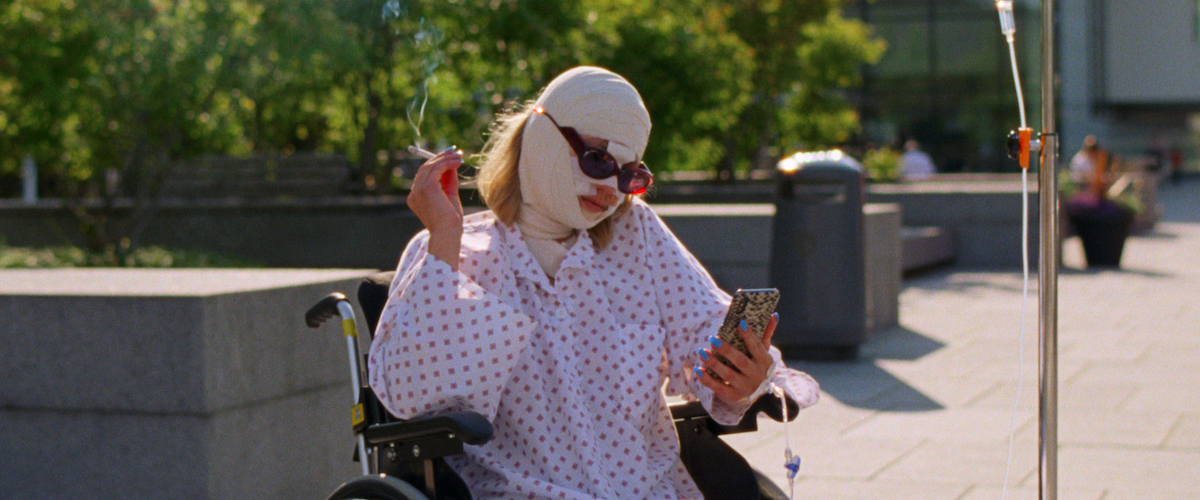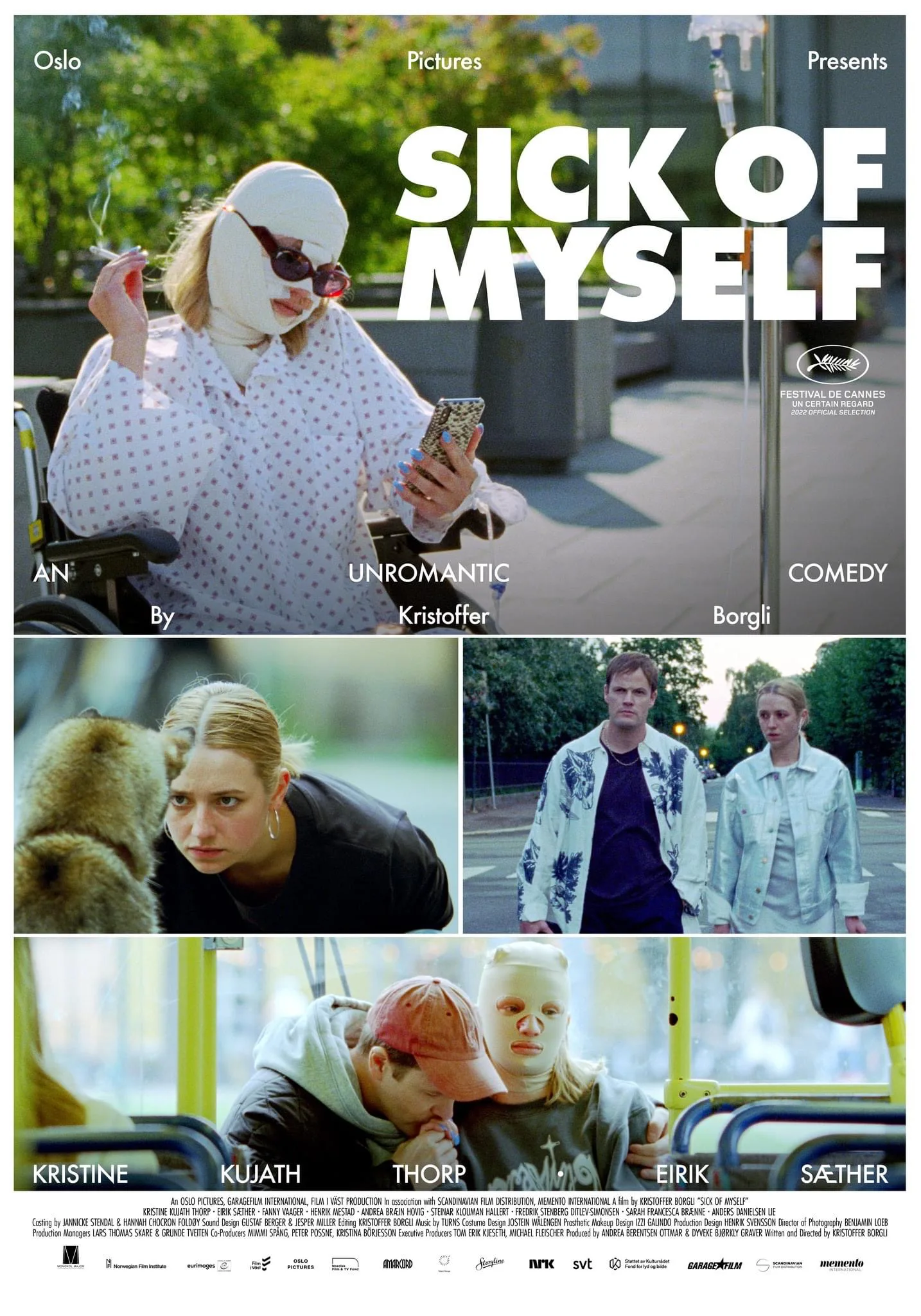An attractive young couple sits at the center of a fancy restaurant in Norway. Signe (Kristine Kujath Thorp) and Thomas (Eirik Sæther) don’t look especially lovestruck, but they’re having a nice enough time with a birthday dessert and a $2300 bottle of wine. At the end of their meal, Thomas tells Signe to take a call outside, and once she’s out of the restaurant, he steals what’s left of the bottle and runs out—an irate waiter chasing after him. Signe, ignored on the sidewalk, looks incredulous as the waiter walks past her after losing Thomas. She resents not being recognized, even if it’s to her detriment. Later, as Thomas celebrates his heist among friends at a party, Signe jealously watches from outside the center of their attention. At that moment, we meet the real unhappy, competitive, and self-destructive couple jockeying for the coveted spotlight at the heart of Kristoffer Borgli’s “Sick of Myself.”
The wine incident is just the first of many stunts both Thomas and Signe will pull to draw attention from one another: exaggerating one’s role in an emergency, a faked allergy, an exhibition of repurposed stolen art, a self-aggrandizing magazine interview, developing an addiction to a Russian drug that causes a devastating skin condition, other health problems, an ill-fated modeling stint. The one-upmanship spirals quickly out of control, but remorse is in short supply. Borgli’s screenplay is about a tale of two narcissists: stylish but hollow, beautiful but grotesque up close. We follow Signe’s journey more than Thomas, and in her head, any setback or opportunity almost immediately leads to illusions of grandeur. It’s a bleak preview of a dark headspace that always sees herself as the victim or hero and everyone else as her adoring public.
In addition to the couple’s hijinks, Borgli’s movie satirizes the modern-day selfie-driven quest for viral fame and fortune. Every awful thing done for attention becomes an opportunity to capitalize on what happens. Like the addiction she develops, a product of her insatiable lust for attention, Signe can’t or won’t stop herself from self-destruction, careening off the rails at full speed. However, this movie’s dark humor is itself a litmus test. Do you laugh when a person in the wrong meets the consequences of their actions? Or do you find their story tragic? Is it funny to watch a couple treat each other so poorly, or is that just part of the punchline? How viewers feel about these mean-spirited antics may affect whether they enjoy the film and Borgli’s sense of humor.
Thankfully for Borgli, his star Kujath Thorp is entirely in on the jokes and looks to revel in Signe’s brand of chaos. It’s permission to misbehave. Signe interrupts a conversation and asks why it’s not about her; she will act hurt for sympathy and lie so many times she loses track. Even behind layers of a prosthesis, Kujath Thorp keeps up some veneer of cool girl detachment while her character is committed to acting out in the worst way possible. She pushes the movie’s edgy humor through her galactic level of self-absorption. “Sick of Myself” works as well as it does due to Kujath Thorp’s charismatic performance.
Despite its characters’ ill intentions, “Sick of Myself” is a very pretty picture. Shot on 35mm film, there’s a romantic quality in the couple’s shared scenes, almost as if things should be going better for them. The city looks like a postcard Signe is intruding on to make the moment about herself, like rearranging a shop’s newsstand to display the cover story about her “mystery illness.” Cinematographer Benjamin Loeb artfully sets up his close-ups of the couple to play up their combative streak, honing in on their pouty faces and furrowed brows when their other half has bested them. For Signe’s fantasy sequences or modeling stint, Loeb and Borgli recreate what it would look like to go on a talk show, debut a bestseller, and shoot a modeling ad, subtly differentiating between reality and delusion even as Signe struggles between them.
Although the movie is darkly funny in spirit, it does pose something of a question for our time: why do people like this command our attention? Thomas’ repurposed stolen furniture and Signe’s craven attempts at Internet fame don’t carry much meaning behind their efforts. They don’t stand for anything but themselves. The movie might even go so far as to suggest that this form of finding someone’s 15 minutes of online fame is its own form of illness: an all-consuming drive to be trending, to have the sadder clickbait story, to create content without really ever creating anything at all. In a moment of desperation, Signe tries to aggravate a dog to bite her so she can have a bigger story to tell. “Find something else to do!” yells the owner once he’s scolded her away from his pet. It’s a warning not taken seriously enough before it’s too late.
In limited release now.




















